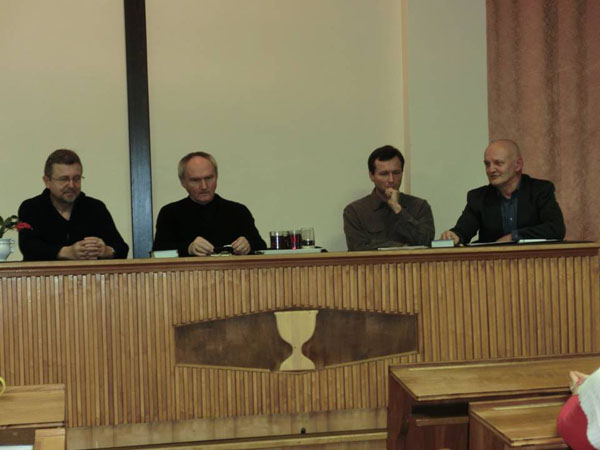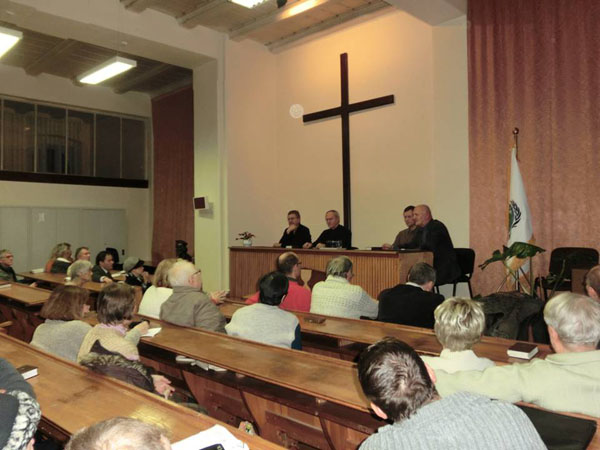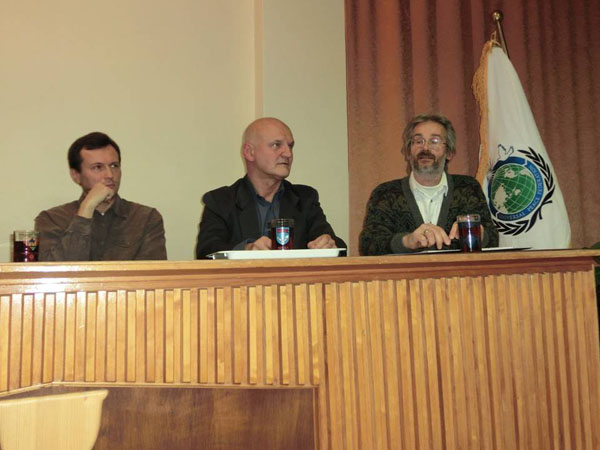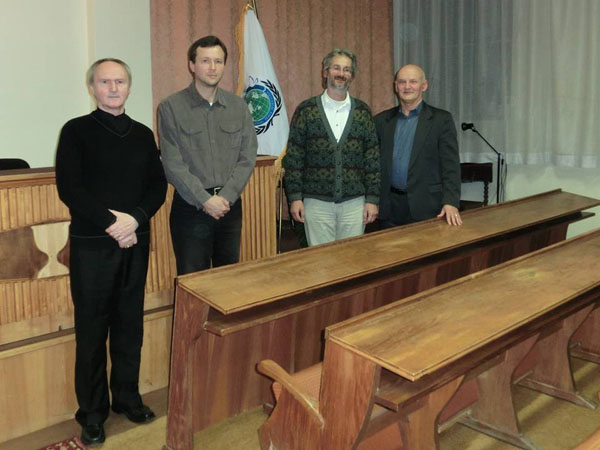![]()
The Words of the Klas Family
|
|
The Words of the Klas Family |

Bratislava, Slovakia -- The year 2013 marks 1700 years since religious freedom was declared in the Roman Empire. In 313 the emperors Constantine and Licinius announced "that it was proper that the Christians and all others should have liberty to follow that mode of religion which to each of them appeared best." Many historians consider the imperial decree as the birth date of "religious freedom" granted by a constitution.* Surprisingly, this historic Edict of Milan received little public attention, even in Christian circles. UPF-Slovakia felt obliged to highlight the historic watershed event. The event title "Quo vadis, Christianity?"** was chosen because there is much debate about the future of Christianity in Europe's secular societies.

The Nov. 27, 2013 event attracted about 40 participants to the Hussite Church in Bratislava. Among the speakers were two bishops and two theologians. Bishop Jan Hradil of the Hussite church opened the panel discussion with welcoming remarks. Next Milos Klas, secretary general of UPF-Slovakia, read the address of Professor Peter Gazik from the Department of Religious Studies of Commenius University, who could not participate personally. Archbishop Augustin Bacinsky compared the situation of Christians in the Roman Empire before 313 with that in the Communist countries before 1989. In both cases Christians displayed more enthusiasm and active involvement during the period of persecution.

As bishops were pampered by the Imperial court, church leaders were spoiled by the post-communist governments; privileges and property became the main concerns. Rev. Miroslav Rybar emphasized that although the Christians had experienced discrimination and intolerance, they did not offer a better example. They were intolerant among themselves and later persecuted the believers of other faiths. The Catholic theologian Martin Deininger explained that some church circles consider the privileges granted by Constantine and his successors a mistake, because it corrupted the spirit of Christianity. He also offered insights about the lineage of Constantine the Great.

Renowned persons, among them a presidential candidate as well as the director of the Department for Churches of the Slovak Ministry of Culture, praised UPF's initiative to hold this "meaningful event."

*Before the Edict of Milan was issued in 313 AD, Christians suffered severe persecution. Their refusal to venerate the supreme Roman God Jupiter as well as the "divine" emperor was considered an act of treason. During the Great Persecution (303–311), the Roman authorities ordered Christian buildings and homes to be torn down and their sacred books collected and burned; the believers were arrested, tortured, mutilated, burned, starved or condemned to death.
** Quo vadis? is a Latin phrase meaning "Where are you going?" It refers to a Christian tradition regarding Saint Peter. According to the apocryphal Acts of Peter, Peter is fleeing from likely crucifixion in Rome at the hands of the government, and along the road outside the city he meets a risen Jesus. Peter asks Jesus "Quo vadis?" to which he replies, "Romam vado iterum crucifigi" ("I am going to Rome to be crucified again"). Hearing these words, Peter gains the courage to continue his ministry and returns to the city, to eventually be martyred by being crucified upside-down.
